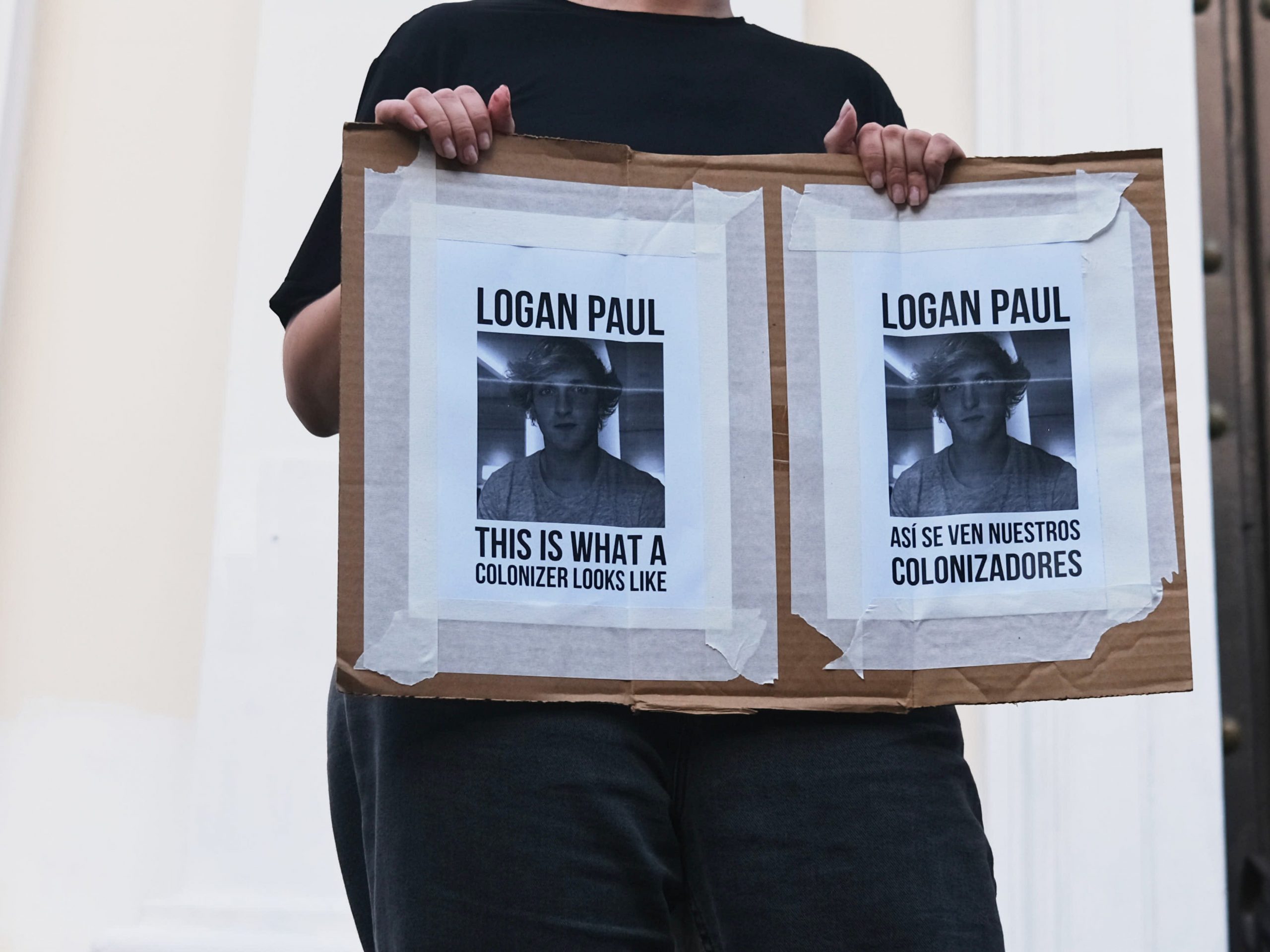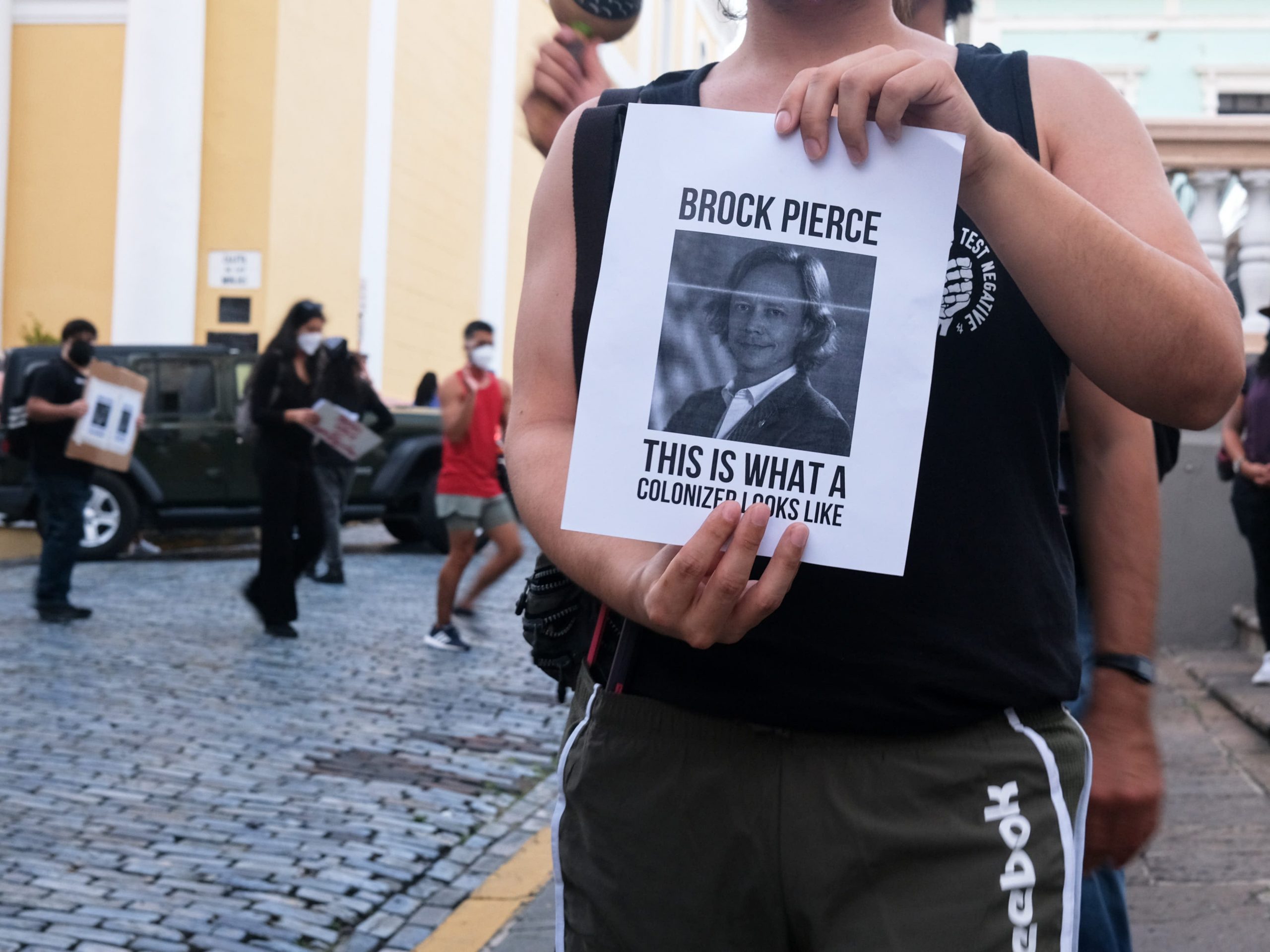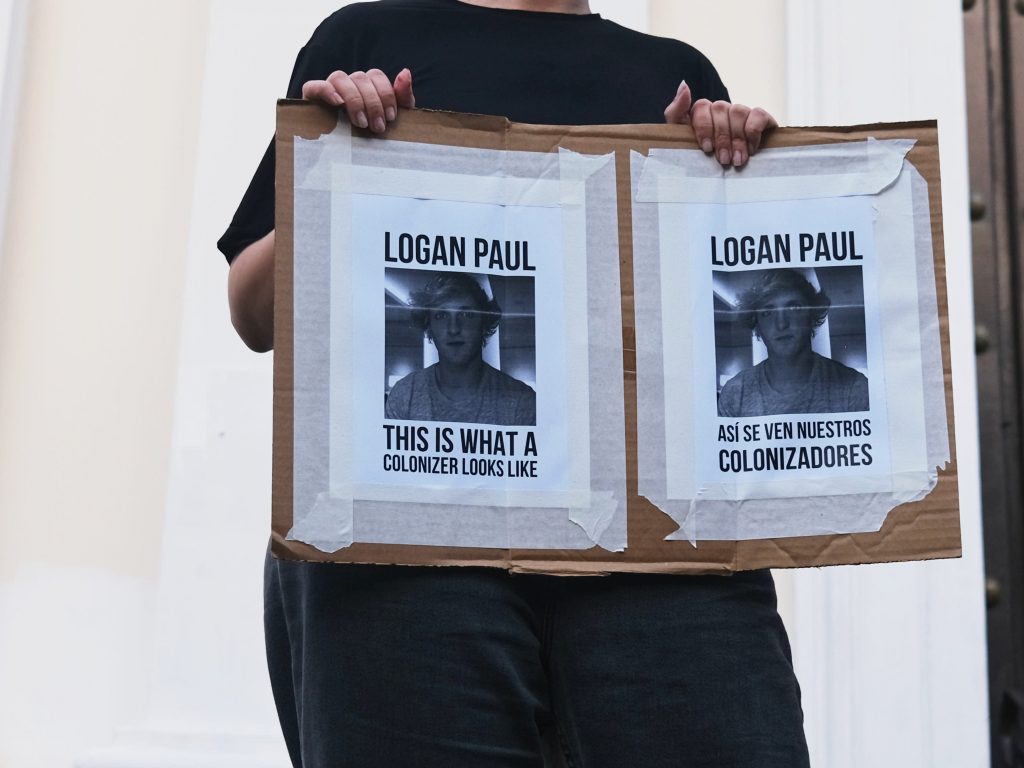
- Wealthy settlers flocked to Puerto Rico during the pandemic, buying up multimillion-dollar properties.
- Posters at a recent anti-gentrification protest compared Logan Paul and Brock Pierce to colonizers.
- Locals say they can no longer afford their homes as real estate prices surge, The New York Times reported.
Protesters at a recent demonstration in Puerto Rico held signs that read, "this is what our colonizers look like," above black and white headshots of millionaires Logan Paul and Brock Pierce.
The saying has become one of the rallying cries behind Puerto Rico's anti-gentrification movement, along with "gringo go home," and "Puerto Rico is not for sale." Posters and graffiti with the taglines can be seen across San Juan, according to a report by The New York Times.
Local residents told the Times they can no longer afford their homes and are being displaced due to the recent influx of wealthy settlers registered under "Act 22," the island's massive tax break.
Between December 2020 and December 2021, the cost of living in Puerto Rico rose by a record-breaking 7% — the largest percent increase since December 1981. Over the past year, single-family housing prices have increased by over 18%, according to federal data.
Brock and Pierce own multi-million dollar mansions and hotels on the island, purchased amid the crypto "gold rush" that peaked during the pandemic. Both men did not respond to Insider's request for comment.
"It's getting crazy here in California, paying taxes," Paul said on his podcast last February while explaining his motivation for leaving LA, which included getting "locked in" on his boxing career. "In Puerto Rico you're motivated to do more and make more money because of the implications that come with it."
Brock Pierce, who is considered one of the leaders of the island's crypto mania, bought an $18.3 million hotel in Vieques two weeks ago. He also owns a $5 million monestary in the historic district of San Juan that doubles as his "club house."
Despite his real estate investments, Pierce told The New York Post that he does not plan on taking a "penny" from the island and any profits he makes in Puerto Rico "will be reinvested in the island or given to charity." In 2020, he donated $1 million to local COVID-19 relief.

Act 22, which allows recipients both passive income and capital gains exemptions, saw a record number of applicants last year. None of those applicants were native Puerto Ricans — only immigrants are eligible to apply.
Not everyone views the newcomers and their Web3 fervor as negative. Young entrepreneurs told The Washington Post that they're excited about the transformative power the high-tech crowd could bring to the island's debt-ridden economy.
Puerto Rico's Department of Economic Development and Commerce predicts there will be 6,392 Act 22 grantees by 2029, with 14,600 local jobs generated as a result. But critics of the law say the local people have yet to reap any benefits.
"The people coming under Act 22 are not adding that much to the Puerto Rican economy," Nobel-prize winning economist Joseph Stiglitz said at a December conference in San Juan. "They are spending a little, but very little, and at the same time they're raising real estate prices and the cost of living for others."
Act 22 — which was reorganized in 2019 to fall under a broader incentives code called Act 60 — was first launched in 2012 with hopes of rescuing Puerto Rico from economic collapse. Five years later, Hurricane Maria ravaged the island, forcing over 100,000 locals to migrate to different parts of the US. While Puerto Rico struggled to recover, the crypto market boomed.
This imbalance of fortune saw local residents exiting their homes as newly-rich investors moved in. By 2019, Puerto Rico experienced the first net-positive migration from other parts of the US in nearly two decades.
A similar fate repeated itself during COVID-19, when the virus upended the local economy and tourism industry. Over the past two years, virtual workers have moved to towns across Puerto Rico's picturesque coast, and crypto happy hours and NFT art galleries shortly followed.
Discover Puerto Rico, the island's tourism board, said this "visitor economy" is vital to the territory's recovery: "When the visitor economy grows, everyone wins. Jobs are created, businesses thrive, the local tax base expands, and potential investors are drawn to Puerto Rico," the website says.
